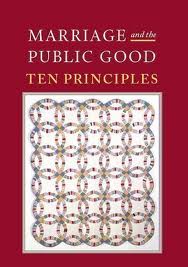10. It spells disaster for children. Our society has been corrupting childhood for a long time, all under the pretense of good hygiene.
Why have we forgotten that it is crucial to our emotional and intellectual development that sexual feelings be latent during childhood? It frees the time for what is then more important: learning. In the first instance, the boy learns to be a boy and then a man, so that afterwards he can marry; and the girl learns to be a girl and then a woman. But also the boys and girls are learning about the world around them—a world of duties and responsibilities. This social learning is short-circuited by a forced precocity in matters of sex.
Other forms of learning are short-circuited too. The boy who at age fifteen is not interested in girls may well be forging his way through calculus, or learning to take cars apart and rebuild them from scratch. The girl who at fifteen is not interested in boys may be devouring the novels of Dickens. Since—given the many years we expect our children to be in school and then college—most will not marry until long after puberty, why on earth would we want to hurry the onset of the troubles? Would we of all people not want instead that our children should not even think seriously about the opposite sex until well into their teenage years, at the earliest?
But if homosexual “marriage” is accepted, there can be no such wise deferral. We will be visiting a crisis of identity upon every child in our society. That, in fact, is the intention of many homosexual activists, whose revenge upon the children who were once cruel or indifferent to them is to afflict other children with doubts, to make them endure the questions that they themselves endured.
All this is done under the guise of charity for the homosexual teenager, but true charity would refrain from plunging children into the trouble in the first place, and would instead offer an unambiguous expectation of heterosexuality. That would give many pubescent teens the wherewithal to shrug off the random doubt, rather than causing it to grow into a dreadful prognosis. But given the latency of sexual feelings during childhood, no child will be able to say, with confidence, “I am a heterosexual”—how could the child really even know what that means?
In the meantime, what for boys and girls is a wholly natural attraction to members of the same sex, in the years when they are forging their identities as boys and girls, will now be shaded with the suspicion of homosexuality—as if the boys and girls could really know what that meant, either!
There is no gainsaying it. If homosexual “marriage” is condoned, then of course kissing, holding hands, celebrating anniversaries, talking about your first date, and all the rest must be condoned. If a teacher can casually mention where he met his wife, then the homosexual teacher can casually mention where he met his husband. Need I mention that logic compels us to travel to the end of this mistaken road? Why should not the bisexual mention to his third-graders where he met his wife and husband?
Not surprisingly, those who will suffer worst from the confusion will be those who run the gravest risks in the formation of their sexual identity: boys. How many of them will now “know,” to their dismay, that they are homosexual, when all they are is lonely or just at the stupid dizzy age of thirteen, when every naked body draws their attention? How many will now avoid the very friendships they long for, in the mistaken fear that their longing for friendship marks them out as homosexual? What guidelines can we provide for children who are trying to establish themselves as boys and girls, when we have effectively told them that there are no guidelines at all?
And what about children as objects of sexual desire? In the few societies wherein homosexuality has enjoyed some measure of acceptance, it has not been homosexual relations between adults, but homosexual relations between a man and a boy, or, more rarely, between adolescent girls. This marked preference for girlish-looking youths is seen in ancient Greece, afterwards adopted in Rome; it is also to be found in the decadent years of the Ottoman Empire and in samurai Japan.
Again, it is not a corruption of the relations between husband and wife, but of the relation between teacher and disciple, mentor and protégé. From Plato’s Symposium we can gather that relations between adult men, such as Pausanias and Agathon, were considered unseemly, effeminate, even ridiculous. Pausanias himself does not try to justify those, but he does complain that ignorant fathers will try to protect their sons from the advances of their lovers (the older men). Evidently not everybody in Athens was pleased by the vice—and, evidently, Plato himself had his doubts about it, as he casts Socrates as the great frustrator of the desires of the debauched Alcibiades.
If male homosexuality has its source in painful events in childhood, then many male homosexuals will be attracted to boys, as they were when they were boys and the natural attraction was frustrated or cruelly rejected. If being homosexual were absolutely no indicator of an inclination towards viewing children as sexual objects, then homosexuals would be only as likely as heterosexuals to abuse children. Then 98 percent of abused children outside the home (for we are not talking about incest) would be girls—but this is certainly not the case. In fact, more than half of the children who are sexually abused outside the home are boys.








